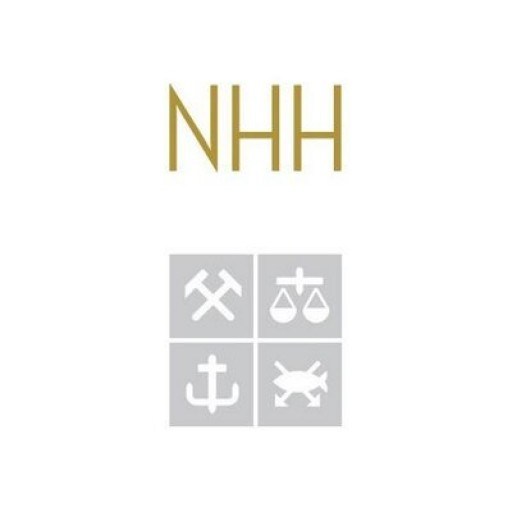The Bachelor's degree programme in Mathematics and Finance at UiT The Arctic University of Norway offers students a comprehensive education that combines rigorous mathematical training with a solid understanding of financial principles. This interdisciplinary programme is designed to equip students with the analytical and quantitative skills necessary to excel in various sectors, including banking, finance, insurance, and data analysis. Throughout the programme, students will engage with advanced topics such as calculus, linear algebra, probability theory, and statistical methods, while also exploring core financial concepts like financial markets, investment analysis, risk management, and financial modeling. The curriculum emphasizes practical applications of mathematical techniques to real-world financial problems, ensuring graduates are well-prepared for careers that demand both theoretical knowledge and practical expertise. UiT’s teaching staff comprises experienced researchers and practitioners who foster an interactive learning environment, encouraging critical thinking and problem-solving abilities. In addition to coursework, students have opportunities to participate in projects, internships, and collaborations with industry partners, providing valuable insights into the financial sector. The programme also offers a pathway to further studies and research, with graduates being eligible for master's programmes in Finance, Economics, Mathematics, or related fields. Located in Norway's northern region, UiT provides a unique setting that combines academic excellence with the opportunity to experience Arctic culture and environment. Graduates of the programme will gain the skills necessary to analyze complex financial data, develop mathematical models, and make informed decisions in dynamic markets. With a strong foundation in both mathematics and finance, students will be prepared both for immediate employment and for advanced academic pursuits, making this programme an excellent choice for those interested in the intersection of quantitative analysis and financial applications.
The Bachelor's degree in Mathematics and Finance at UiT The Arctic University of Norway offers students a comprehensive education that combines rigorous mathematical foundations with practical financial knowledge. This interdisciplinary program is designed to equip students with the analytical and quantitative skills necessary for a wide range of careers in finance, banking, insurance, data analysis, and other sectors that rely heavily on mathematical modeling and financial theory. Throughout the program, students will engage with core courses in advanced mathematics, including calculus, linear algebra, and probability theory, as well as subjects related to financial mathematics, such as risk assessment, investment analysis, and financial markets. The curriculum emphasizes both theoretical understanding and practical application, preparing students to analyze complex financial data, develop mathematical models, and make informed decisions in dynamic economic environments. In addition to technical skills, the program also fosters critical thinking, problem-solving, and effective communication abilities, which are essential for leadership roles in finance and related fields. Students will have opportunities for hands-on learning through projects, internships, and collaborations with industry partners, providing valuable real-world experience. The program is tailored to meet the evolving demands of the financial sector, ensuring graduates are well-prepared for employment or advanced studies. With access to modern laboratories, expert faculty, and a stimulating academic atmosphere, students will develop a solid foundation in both mathematics and finance, opening doors to diverse career opportunities in Norway and internationally. Upon graduation, students will be equipped with the mathematical acumen and financial insight needed to contribute effectively to the financial industry, policy-making, and research initiatives.
The financing of the Mathematics and Finance program at UiT The Arctic University of Norway is primarily covered through a combination of publicly funded education, student loans, and grants provided by the Norwegian government. The program qualifies for full funding through the Norwegian Student Grants and Loans Scheme (Lånekassen), which offers financial support to Norwegian and Nordic students enrolled in recognized higher education programs. This support typically includes tuition fee coverage, as the majority of publicly funded degree programs in Norway are tuition-free for Norwegian, Nordic, and EU/EEA students. International students from outside the EU/EEA may be required to pay tuition, but they often have access to scholarships or other financial aid options to assist with their studies.
Students are also encouraged to seek external funding sources such as scholarships offered by the university or private organizations. UiT provides information and guidance on available scholarships and bursaries, especially targeted toward international students. It is important for prospective students to plan their finances carefully, considering living expenses in Norway, which are generally covered by students through personal savings, part-time work, or external funding sources. Norway boasts a strong student work policy allowing students to work part-time during their studies, which can help supplement their income.
Graduate students might also have opportunities for fellowships, research grants, or teaching assistant positions, which can provide additional financial support. The university’s administration continuously works to ensure that study programs are accessible and affordable to a diverse range of students by maintaining relationships with external funding bodies, government agencies, and scholarship organizations. Overall, the financial structure of the Mathematics and Finance program is designed to support students through a comprehensive mix of government funding, personal resources, and external financial aid to ensure that students can focus on their studies without undue economic burden.
The Master's degree program in Mathematics and Finance at UiT The Arctic University of Norway offers students a comprehensive education that combines advanced mathematical techniques with financial theory and practice. The program is designed for students who wish to develop a strong foundation in quantitative methods, actuarial science, financial modeling, risk management, and econometrics, preparing them for careers in finance, banking, insurance, and related sectors. The curriculum emphasizes both theoretical understanding and practical application, enabling graduates to analyze complex financial problems, develop innovative solutions, and make data-driven decisions.
Students enrolled in this program have the opportunity to learn about a wide range of topics including stochastic processes, mathematical modeling, financial derivatives, investment analysis, and statistical methods. The program also provides training in programming and computational skills necessary for modeling and data analysis in finance. The coursework is complemented by project work, seminars, and potential internships which facilitate practical exposure and industry connections.
The Master’s program typically spans two years, offering full-time study with coursework in the first year and a specialized thesis project in the second year. The university fosters a collaborative academic environment, encouraging interaction among students and faculty. The program also emphasizes research-based learning, with faculty members involved in active research projects that influence the curriculum.
Graduates of the Mathematics and Finance program are equipped to work in various roles such as quantitative analysts, risk managers, financial engineers, and data analysts. They benefit from UiT's strong connections with industry and research institutions across Norway and internationally, which can provide valuable networking opportunities and employment prospects after graduation. Admission to the program generally requires a relevant bachelor's degree with a solid background in mathematics, statistics, or economics. The program is conducted primarily in English, attracting international students and providing an international environment conducive to global career development.
Overall, the Master's program in Mathematics and Finance at UiT aims to produce highly skilled professionals who are capable of applying advanced mathematical and statistical methods to solve complex financial problems, adapt to a rapidly changing financial landscape, and contribute to technological and scientific advancements in the field of finance.







